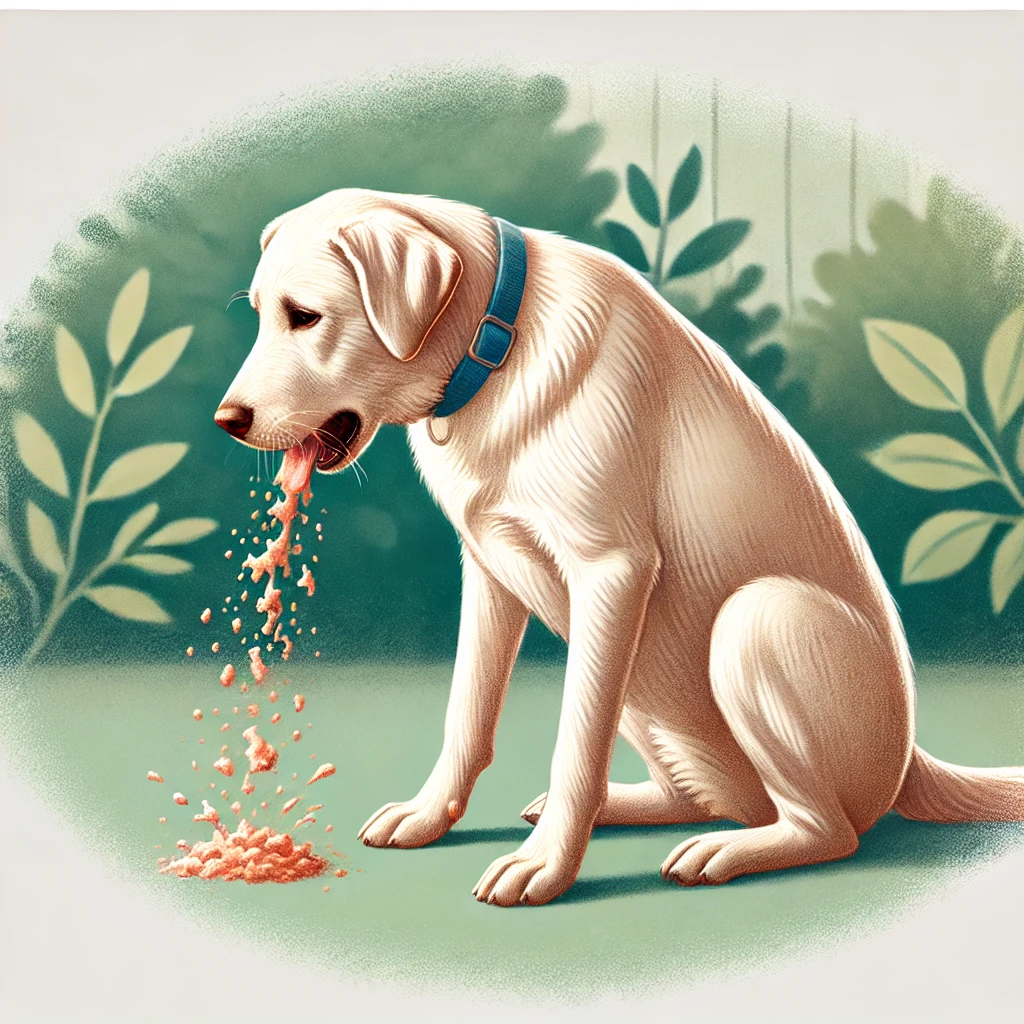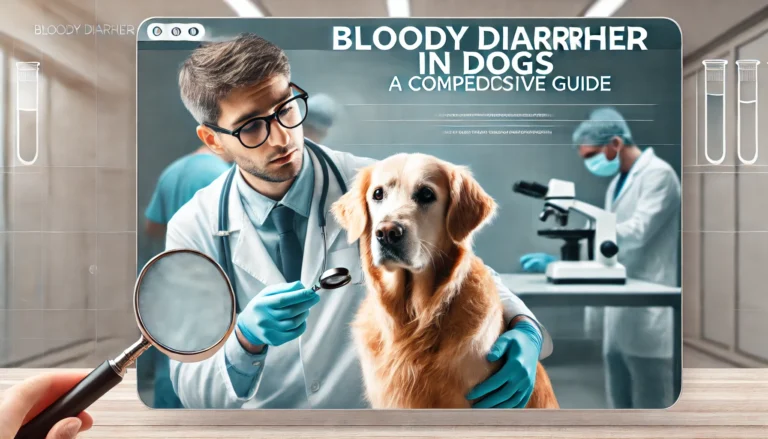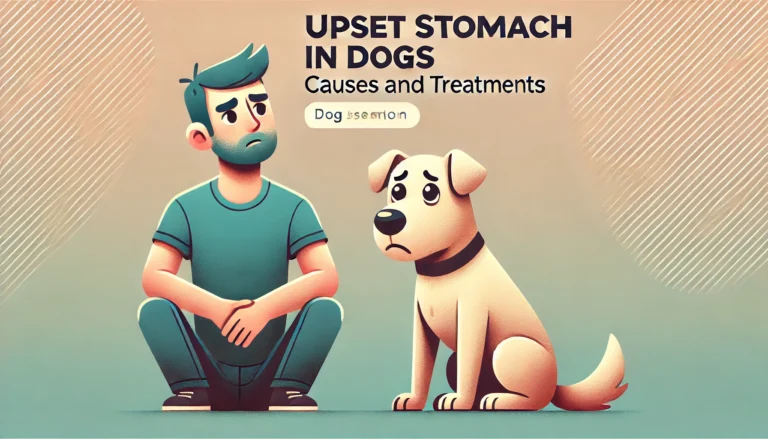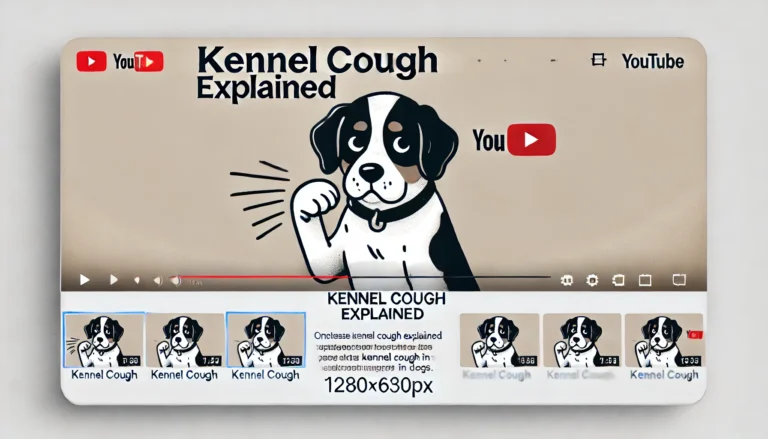Cause of vomiting in dogs

Vomiting in dogs is one of the main concerns for dog owner. When our furry companions start vomiting, it can quickly turn a normal day into one filled with worry. Vomiting in dogs is not just about an upset stomach; it can signal anything from a minor dietary indiscretion to a serious health issue. This guide dives deep into why dogs vomit, how to handle it, and when to seek veterinary help.

What Triggers Vomiting in Dogs?
Dietary Indiscretion:
Often, dogs will vomit because they have eaten something they shouldn’t have. This could be due to scavenging garbage or eating too fast, leading to vomiting up yellow foam or undigested food. It is preferred to give sick dogs better food and diet.
Gastrointestinal Infections:
Viral or bacterial infections can cause your dog to throw up. If you see your dog throwing up white foam, it may be a sign of an infection.
Toxic Substances:
If your dog has ingested something toxic, vomiting is the body’s way of expelling the poison. This could include chocolate, certain plants, or chemicals.
Underlying Health Problems:
Chronic conditions like kidney disease, liver problems, or even diabetes can lead to your dog vomiting up yellow bile or experiencing other types of vomiting.
Symptoms Accompanying Vomiting in dogs
Watch for these signs:
- Repeated Vomiting: If your dog keeps throwing up, it’s a sign that something more serious may be happening.
- Blood in Vomit: Dog vomiting blood can be alarming. It often appears as red streaks or might be digested blood, which looks like coffee grounds.
- Lethargy and Depression: A dog that is vomiting and lethargic might be suffering from something that needs immediate attention.

When is Vomiting in dogs Serious?
Immediate Veterinary Care Required:
- Vomiting with Blood: Whether it’s bright red or looks like coffee grounds, blood in vomit is a serious concern.
- Severe Dehydration: If your dog can’t keep water down, this can lead to dehydration quickly.
Monitor and Consult:
- Infrequent Vomiting: Occasional vomiting might not be an emergency, but if your dog is vomiting up yellow liquid multiple times, it’s best to consult with your vet.
Diagnostic Tests
Your vet might recommend:
- Blood Tests: To check for underlying diseases.
- X-rays or Ultrasound: These can help identify blockages or structural anomalies.
Treatment: Medicated and Natural Remedies
Medications:
- Anti-nausea Drugs: Can help settle the stomach.
- Antibiotics: Used if a bacterial infection is suspected.
Home Care:
- Diet: Feeding bland foods like boiled chicken and rice can help soothe an upset stomach.
- Hydration: Encourage your dog to drink water or give ice cubes to lick.
Preventing Vomiting in Dogs
Diet and Supervision:
- Consistent Diet: Stick to a regular diet suitable for your dog’s digestive system.
- Supervise Eating: Ensure your dog doesn’t eat too quickly or consume harmful substances.
Regular Veterinary Check-ups:
- Health Monitoring: Regular check-ups can catch early signs of conditions that might lead to vomiting.
Conclusion
Vomiting in dogs can stem from a variety of causes, from the benign to the serious. Understanding when to treat at home and when to call the vet is crucial. Always monitor your dog’s overall health and behavior, and when in doubt, consult your veterinarian to ensure your dog gets the care they need.






